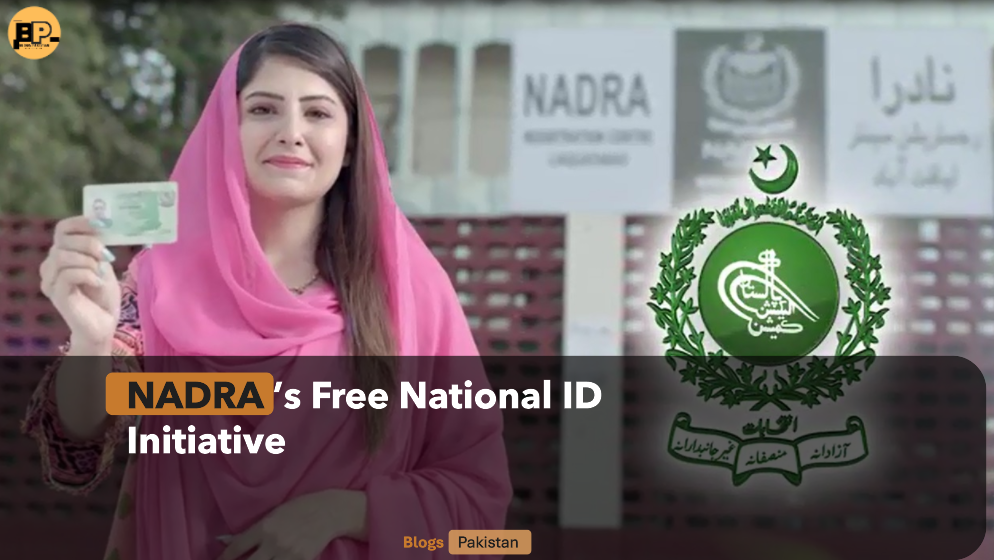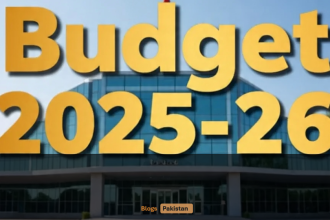In a country where access to basic services often hinges on official documentation, the National Database and Registration Authority (NADRA) has launched a transformative program aimed at dismantling barriers to citizenship. The agency recently announced that first-time applicants can now obtain their Computerized National Identity Card (CNIC) completely free of charge—a move set to redefine inclusivity and accessibility for millions. Let’s explore how this initiative is reshaping Pakistan’s identity landscape and what it means for its citizens
Why Free CNICs Matter: Bridging the Gap in Identity Access
For many Pakistanis, obtaining a national ID card has historically been a hurdle due to costs, bureaucratic complexities, or lack of awareness. The CNIC isn’t just a piece of plastic; it’s a gateway to voting, opening bank accounts, securing government subsidies, and accessing healthcare and education. By waiving fees for first-time applicants, NADRA is addressing systemic inequalities and ensuring that even the most marginalized populations can claim their rights as citizens.
This policy shift aligns with global trends toward digital inclusion, where governments prioritize universal access to identification as a cornerstone of socio-economic development. In Pakistan, where an estimated 10 million people lack official IDs, the initiative could be life-changing.
Breaking Down the New Policy: Who Benefits and How?
NADRA’s free CNIC offer applies exclusively to first-time applicants. Here’s what you need to know:
Eligibility Criteria
- Applicants must be Pakistani citizens aged 18 or older.
- Minors (under 18) can apply for a Juvenile CNIC, though this service isn’t covered under the free scheme.
- Documentation requirements include proof of residence, birth certificate, and parental IDs for verification.
Key Features of the Non-Chip CNIC
While the free cards don’t include embedded microchips, they’re far from basic. NADRA has integrated cutting-edge features to enhance security and usability:
- Bilingual Data Display: Personal details appear in both Urdu and English, streamlining compatibility with international systems and reducing errors in official records.
- High-Resolution Color Photos: Gone are the days of grainy black-and-white images. The upgraded visuals aid facial recognition systems used by banks and law enforcement.
- QR Code Technology: Each card includes a scannable QR code linked to the Pak-ID mobile app, allowing instant access to digital identity verification.
- Lifetime Validity for Vulnerable Groups: Organ donors and persons with disabilities receive special endorsements on their cards, eliminating the need for costly renewals.
From Application to Delivery: A Step-by-Step Guide
NADRA has streamlined the process to make it as user-friendly as possible. Here’s how first-time applicants can claim their free CNIC:
- Visit a NADRA Registration Center: Locate your nearest center via the NADRA website or mobile app.
- Submit Required Documents: Bring original copies of your birth certificate, proof of address, and parents’ CNICs.
- Biometric Data Collection: Fingerprints and photographs are captured onsite.
- Track Your Application: Use the tracking number provided to monitor progress through SMS or the Pak-ID app.
Processing Time: The free CNIC typically arrives within 15 working days. For those needing faster service, paid tiers are available:
- Standard (31 days): PKR 400
- Urgent (15 days): PKR 1,150
- Executive (9 days): PKR 2,150
The Tech Behind the Cards: How NADRA is Future-Proofing Identity
While chip-based CNICs remain an option for a fee, the upgraded non-chip cards demonstrate NADRA’s commitment to innovation. The QR code system, for instance, bridges the gap between physical and digital identity. By scanning the code, users can:
- Verify their identity for online services.
- Access tax records or vaccination certificates.
- Report lost or stolen cards instantly.
This hybrid approach ensures that even citizens who can’t afford chip-enabled cards aren’t left behind in the digital revolution.
Impact on Marginalized Communities: Stories of Empowerment
The free CNIC initiative isn’t just about convenience—it’s a lifeline for vulnerable groups:
Women in Rural Areas
In conservative regions, many women lack IDs due to cultural restrictions or limited mobility. With a CNIC, they can open bank accounts independently, claim inheritance rights, and participate in elections.
Transgender Individuals
NADRA’s policy includes provisions for third-gender markers, allowing transgender citizens to align their official identity with their lived experience—a critical step toward social acceptance.
Urban Poor and Daily Wage Workers
For laborers and street vendors, the CNIC is often the only proof of citizenship required to access subsidized food programs or enroll children in school.
Challenges and Criticisms: Is the System Perfect?
While the initiative has been widely praised, challenges remain:
- Awareness Gaps: Rural communities may lack information about the free CNIC program.
- Documentation Barriers: Obtaining birth certificates or parental IDs can be difficult for orphans or refugees.
- Capacity Issues: Overburdened NADRA centers may struggle with increased demand, leading to longer wait times.
Activists urge the government to complement the policy with mobile registration vans and community outreach campaigns to ensure no one is excluded.
Looking Ahead: NADRA’s Vision for a Digitally Inclusive Pakistan
The free CNIC scheme is just one piece of NADRA’s broader strategy. Upcoming projects include:
- Blockchain-Based IDs: Pilot programs exploring secure, decentralized identity systems.
- Integration with E-Governance Platforms: Linking CNICs to portals for healthcare, pensions, and disaster relief.
- AI-Driven Fraud Detection: Using machine learning to flag counterfeit applications in real time.
By prioritizing accessibility and innovation, NADRA is not just issuing IDs—it’s building the infrastructure for a more equitable society.
Final Note: For details on documentation, center locations, or eligibility, visit NADRA’s official portal at www.nadra.gov.pk. Whether you’re a first-time applicant or assisting someone who is, this initiative marks a pivotal moment in Pakistan’s journey toward universal citizenship.










